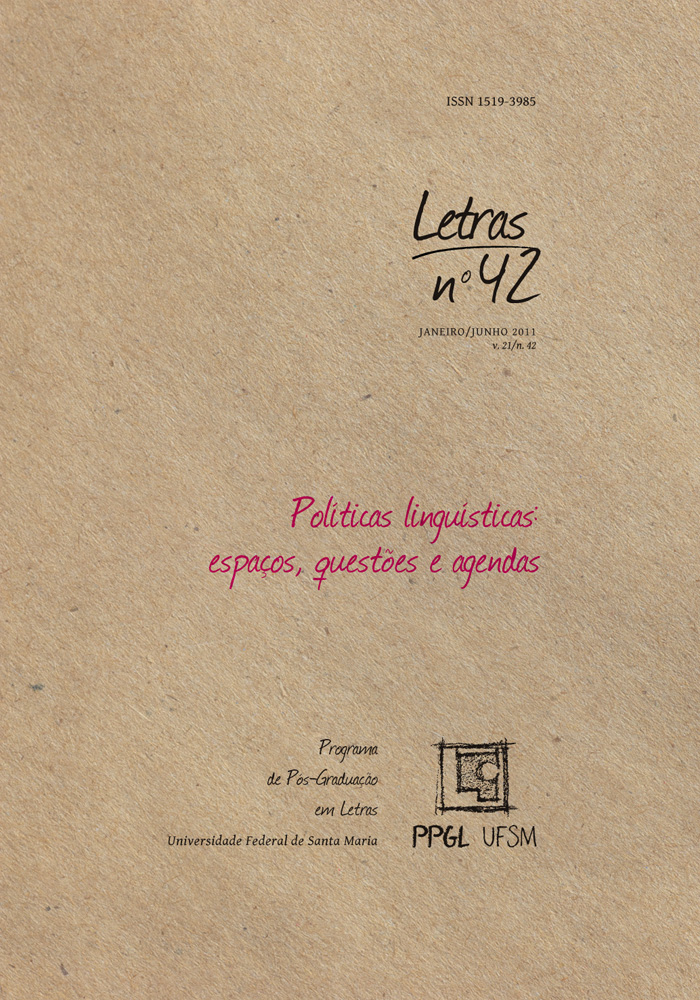“Speaking correctly is understanding well the terminology used by white men”: toward a situated plurilingualism description for bilingual intercultural education in Argentina
DOI:
https://doi.org/10.5902/2176148512171Keywords:
Plurilinguism. Bilingual intercultural education. Interactional sociolinguistics.Abstract
In this paper, the first results on the study about plurilinguism in the Bilingual Intercultural Education framework are presented. Starting from the analysis of texts and interactions collected among students of a teacher education programme for members of the wichi aboriginal communities in Chaco, and taking as axis different Spanish varieties, it is proposed that the plurilinguism must be described as a social categorization resource and as a resourse for social activities definition, that highlights the display of some symbolic competence by the speakers to give sense to what is said and done. This approach to plurilinguism – in its social historical complexity – is opposite from that which wants to present it as an addition of monolinguisms, balanced competences and equivalent among languages. In this tension between the two definitions, an interesting space for discussion about some elements of current linguistic politics in Argentina is outlined.Downloads
Download data is not yet available.
Downloads
Published
2011-06-01
How to Cite
Unamuno, V. (2011). “Speaking correctly is understanding well the terminology used by white men”: toward a situated plurilingualism description for bilingual intercultural education in Argentina. Letras, (42), 45–71. https://doi.org/10.5902/2176148512171
Issue
Section
Articles







